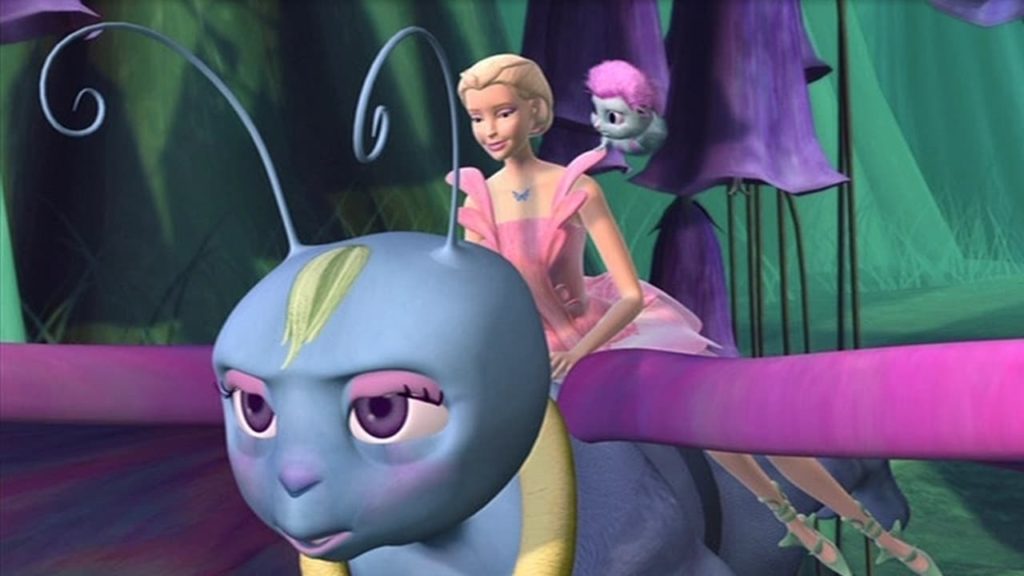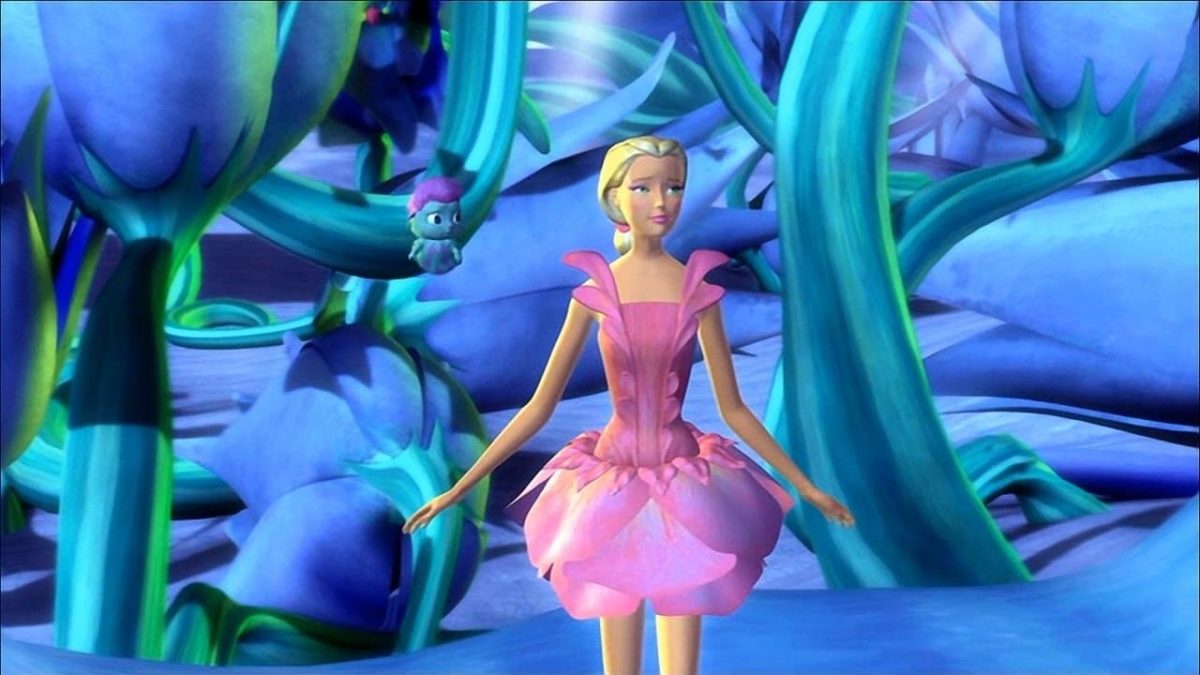I can’t believe I’m doing this. Not just reviewing a Barbie fairy movie, but singing its praises.
Barbie: Fairytopia is a 2005 direct-to-video CGI-animated film about a wingless fairy named Elina who lives in the Magic Meadow. Elina undertakes a quest to stop the evil Laverna from taking over all of Fairytopia. The only other Barbie media I had consumed prior to this was the delightfully postmodern and playful “Life in the Dreamhouse” series of shorts. I didn’t know what to expect from a proper, earnest Barbie movie; something cheap and rushed and designed to sell toys, most likely.
Nothing could have prepared me for how much thought went into this script. I swear writers Elise Allen and Diane Duane must have pored over this thing for months on end. There is elaborate lore that is, to my knowledge, invented whole-cloth for this film: A whole encyclopedia of worldbuilding and characters and mythical creatures. There’s a hierarchical political structures and complex rules about rainbow magic.

It’s pretty inscrutable and weird and high on its own fairy-world vernacular, to the point that it borders on fever-dream psychedelia. But that’s all part of its charm. The writers give us exactly as much information as we need to carry the story along, and only fill in the gaps as needed; not in a cheap way, but with narrative discipline and economy. There are a few moments in the climax where we see the breadcrumbs the story had left for us along the way, and it’s legitimately satisfying payoff.
The writers, Allen and Duane, must also have read up on their Joseph Campbell; this is a proper, whole-assed hero’s journey, not just episodic fluff that toddler media traffics in. There are themes of self-sacrifice and embracing everything that which makes us different, even if society wants us to feel lesser for it.
That last point makes it very easy to apply a queer reading to Barbie: Fairytopia, and when I started to do so, I was astonished how well that reading held up. Rainbows and flower imagery are everywhere, while men are rare and effeminate. Elina has undeniable romantic tension with about three other (female) fairies, and her desire for wings reads more generally as a quest for authentic acceptance despite being fundamentally different from societal norms; e.g., coming out of the closet.
However you want to read it, it’s a product of elemental storytelling. Formulaic and predictable, sure, but archetypes have existed for centuries for a reason, and they’re put to good use here.

Alas, the flip side of the coin is the visual presentation. The animation is Playstation 2 cutscene level, and even that might be a bit generous; the character models are blocky and primitive, the colors muddy and dim.
Barbie: Fairytopia does try to make the most of its limitation by suggesting a murky dream world with disorienting color clashes. But it’s all still pretty aggressively ugly and simplistic-looking. The majority of the character designs are generic Barbie doll shapes lacking distinct definition.
Another problem, even more distracting: The movie prominently features an annoying, gibberish-squeaking sidekick named Bibble. If he’s ever even remotely cute, he’s worn out his welcome by about ten minutes in, which leaves us sixty more to suffer through his ear-grating nonsense.
Oh yeah, did I mention the movie is barely 70 minutes? A short runtime helps make even the bitterest medicine go down, but Barbie: Fairytopia doesn’t really need to be graded on a curve like that. I am genuinely impressed with how seriously it takes its storytelling mission when it could easily have been a lazy toy-hawking ad.
Is It Good?
Good (5/8)
Dan is the founder and head critic of The Goods. Follow Dan on Letterboxd. Join the Discord for updates and discussion.

